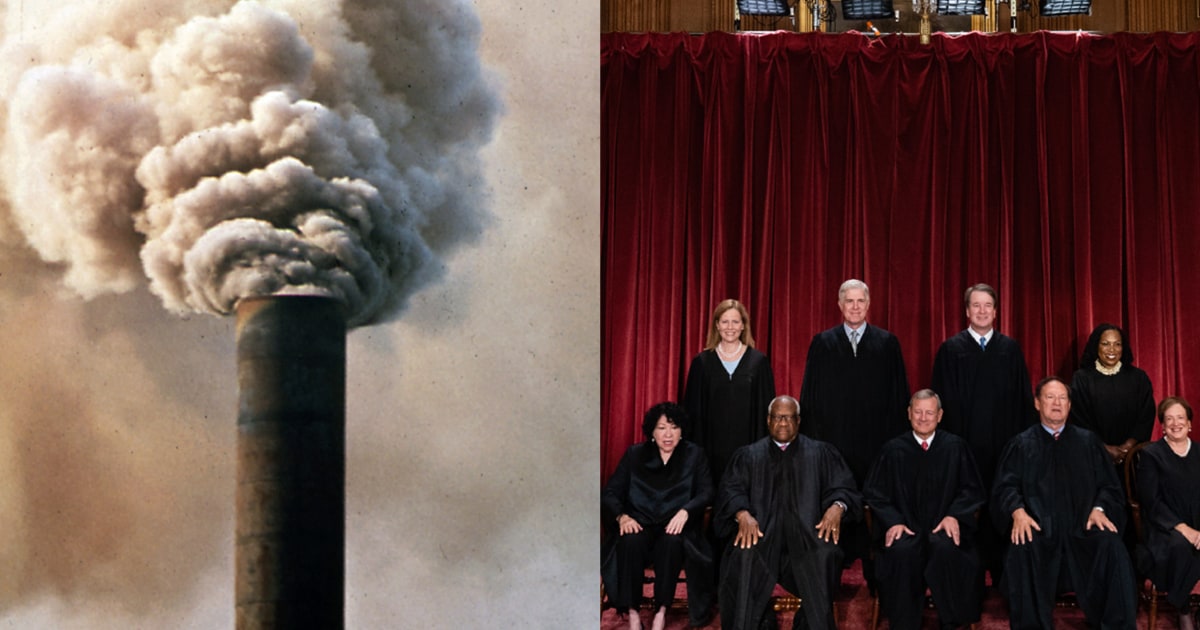Doc7505
Diamond Member
- Feb 16, 2016
- 19,654
- 35,744
- 2,430
The two fictions at the heart of the devastating Chevron doctrine ruling
Although it won’t get as much attention as some of the other rulings in this term, the court’s decision could end up having the most significant long-term impact.

Opinion | The two fictions at the heart of the devastating Chevron doctrine ruling
Although it won’t get as much attention as some of the other rulings in this term, the court’s decision could end up having the most significant long-term impact.
Imagine that Congress passes a statute authorizing the Environmental Protection Agency to require permits whenever material alterations are made to a “major stationary source” of air pollution (or new ones are created). So far, so good. Now imagine that a power plant near your home has three smokestacks. Does that count as one “major stationary source” or three? And what makes a stationary source “major”? Beyond these substantive questions is a procedural one: Who should resolve these matters? Unelected federal judges, who may have no particular expertise in environmental law, or the federal agency staffed with scientific and policy experts who do?
The smokestack example is a simplified version of the facts of a real 1984 case, Chevron U.S.A., Inc. v. Natural Resources Defense Council, in which the Supreme Court held that, if a statutory term is ambiguous, courts should generally defer to an executive branch agency’s reasonable interpretation. In Chevron, that meant upholding a Reagan-era rule that defined “major stationary source” on a plantwide basis (back to our earlier example, one source, not three). The animating principle behind Chevron is that, given the range and depth of federal regulations, Congress can’t be expected to define every aspect of every agency’s power with surgical specificity. And it made more sense to let the agencies — to whom Congress delegated the relevant power in the first place — provide any final missing details. As the court explained, “Judges are not experts in the field, and are not part of either political branch of the Government.”
On Friday, in an ideologically divided 6-3 ruling penned by Chief Justice John Roberts, the Supreme Court unceremoniously overruled the Chevron precedent. And although it won’t get as much attention as Friday’s other rulings in the Jan. 6 obstruction case or the Grants Pass homelessness case (neither of which will get much attention in light of Monday’s ruling in the Trump immunity case), the court’s decision overruling Chevron, Loper Bright Enterprises v. Raimondo could end up having the most significant long-term impact.
~Snip~
There are somewhere north of 430 federal agencies; even if Congress devoted one calendar day each year to one agency, it wouldn’t get to all of them. And even if it could, some agencies enforce dozens of statutes. Could even the most hard-working, institutionally responsible Congress be expected to define in detail exactly what does and doesn’t count as a “major stationary source of pollution?”
~Snip~
That may not seem like a huge deal compared to, for example, whether former President Donald Trump can be prosecuted for his alleged role in the storming of the Capitol. But federal regulators and regulations are all around us inspecting our meat; ensuring that everyday products, from cribs to cars, are manufactured to minimum safety standards; looking out for public health; and on and on and on.
Agencies aren’t perfect. But neither are judges. And if the question is whether technical questions should be resolved by those with the relevant expertise who work for presidents for whom we have voted, or by generalist judges selected (and sometimes hand-picked) by plaintiffs with an ideological axe to grind, the answer shouldn’t have been this hard. Deference to executive branch agencies is something we’ll miss when (as of last Friday) it’s gone.
Commentary:
"Agencies aren’t perfect."
Unfortunately Federal Agencies have been and are being politized to force agendas such as man-made climate change. This SCOTUS decision allows citizens to have a say in the fairness and science of agency regulations, which Neo-Marxiost Democrats refuse to allow as it slows the advance to communism.
The way PMSNBC is reacting basically proves SCOTUS got it right.
Here's a good example:
MSN
www.msn.com